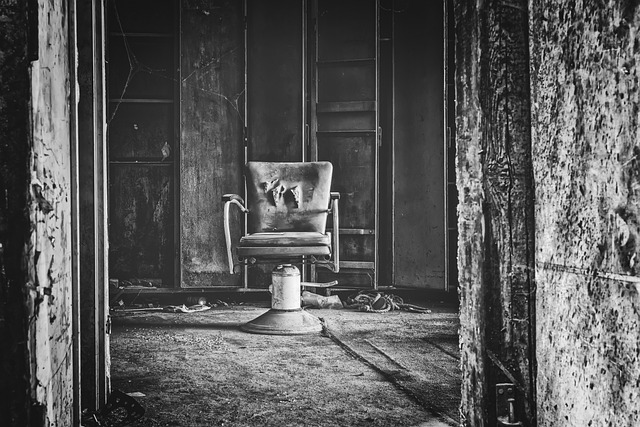Addiction among medical professionals is a growing concern, impacting patient safety and integrity. Healthcare workers face unique challenges seeking doctor addiction treatment, including stigma, career repercussions, and a culture of silence. Confidentiality is crucial, with reputable programs offering online counseling and strict data protection. Specialized doctor addiction treatment focuses on evidence-based therapies, trauma resolution, stress management, and peer support for successful recovery while preserving medical licenses. Establishing robust post-treatment support systems, including aftercare and alumni networks, ensures sustained healing for healthcare professionals.
“In the demanding landscape of healthcare, the well-being of medical professionals is paramount. However, addiction can affect anyone, including doctors, often obscured by the relentless pace and high-stress environments of hospitals and clinics. This article explores the critical issue of confidential addiction treatment for healthcare workers, delving into the unique challenges they face when seeking help. We discuss tailored strategies, emphasizing privacy measures, effective treatment approaches, and robust support systems essential for their journey towards recovery.”
- Understanding the Prevalence of Addiction Among Healthcare Professionals
- The Unique Challenges and Barriers to Seeking Treatment
- Confidentiality and Privacy Measures in Doctor Addiction Treatment
- Effective Treatment Approaches Tailored for Medical Workers
- Support Systems and Aftercare for Sustained Recovery
Understanding the Prevalence of Addiction Among Healthcare Professionals

Addiction is a growing concern within the healthcare industry, often overlooked yet prevalent among medical professionals and workers. Despite their high level of training and dedication to patient care, doctors and nurses are not immune to substance abuse or mental health struggles. Several factors contribute to this issue, including intense work pressures, long shifts, exposure to traumatic events, and a culture that may encourage self-medication as a coping mechanism.
The impact of addiction among healthcare workers can be significant, affecting patient safety, professional integrity, and even leading to medical license protection issues. Many medical professionals fear stigma and legal repercussions when seeking help for their struggles, hindering their access to nurse addiction treatment or doctor addiction treatment programs. Recognizing the hidden nature of this problem is crucial in fostering a supportive environment where healthcare worker recovery can thrive.
The Unique Challenges and Barriers to Seeking Treatment

Seeking help for addiction among healthcare professionals faces unique challenges. The fear of judgment and potential repercussions often acts as a significant barrier to entry. Doctors and nurses, accustomed to providing care, may struggle with the notion of needing assistance themselves, leading to delays in treatment. Additionally, concerns about medical license protection and career implications can create an even greater obstacle, making it harder for these individuals to prioritize their well-being and seek the doctor addiction treatment they need.
The pressure to maintain a professional image and the fear of exposure contribute to a culture of silence around healthcare worker recovery. This secrecy can be detrimental to the individual’s health and hinder their ability to access specialized nurse addiction treatment programs designed to understand the unique demands of their profession. Overcoming these barriers requires creating supportive environments, offering confidential treatment options, and ensuring medical license protection for those seeking help.
Confidentiality and Privacy Measures in Doctor Addiction Treatment

When seeking doctor addiction treatment, maintaining confidentiality is paramount for healthcare professionals and medical workers who fear stigma or potential repercussions on their careers. Reputable treatment centers understand this sensitivity and have robust privacy measures in place to protect patient information. Encryption technologies, secure data storage, and strict access controls ensure that personal details remain confidential, safeguarding the privacy of those struggling with addiction.
This discretion extends beyond the physical confines of treatment facilities. Many programs offer online counseling sessions or teletherapy options, further enhancing confidentiality for medical professionals who may prefer discreet support while maintaining their work-life balance. By prioritizing these privacy measures, healthcare worker recovery becomes a feasible and appealing option, addressing the unique challenges faced by doctors, nurses, and other medical personnel without compromising their professional standing or medical license protection.
Effective Treatment Approaches Tailored for Medical Workers

For healthcare professionals and medical workers grappling with addiction, specialized and effective treatment approaches are crucial. Recognizing the unique challenges faced by these individuals, many rehabilitation centers offer tailored programs that address both the physical and psychological aspects of recovery. These often include individual therapy sessions focusing on trauma resolution, stress management, and coping mechanisms, alongside group support groups where peers can share experiences and encouragement.
Nurse addiction treatment and doctor addiction treatment programs prioritize confidentiality to foster trust and openness. They may incorporate evidence-based therapies such as Cognitive Behavioral Therapy (CBT) and Motivational Interviewing (MI), which have proven successful in helping healthcare workers overcome substance abuse while ensuring medical license protection. By tailoring their approach to the specific needs of medical professionals, these programs not only facilitate recovery but also contribute to the overall well-being of the healthcare workforce.
Support Systems and Aftercare for Sustained Recovery

For healthcare professionals and medical workers seeking doctor addiction treatment, building a robust support system is essential for sustained recovery. This often includes peer support groups where colleagues can share experiences and offer encouragement, as well as professional counseling services tailored to understand the unique challenges faced in high-pressure environments. Access to continuing education programs that focus on stress management and resilience further equips medical professionals with the tools necessary to maintain their own well-being and prevent relapse.
After completing a nurse addiction treatment or doctor addiction treatment program, ongoing aftercare plays a crucial role in ensuring long-term recovery. This can involve regular check-ins with healthcare providers, participation in alumni networks, and access to specialized resources like medical license protection services, which are designed to safeguard their professional standing. By integrating these support systems into their lives, healthcare workers can foster a sense of community, maintain accountability, and continue their journey towards sustained recovery.
Healthcare professionals facing addiction have unique challenges, but confidential addiction treatment tailored for medical workers offers hope. By addressing the specific barriers to seeking help and prioritizing privacy, effective programs support recovery while maintaining patient care standards. Through specialized approaches and robust aftercare, doctors can access the resources needed to overcome addiction and regain control of their lives, ensuring they remain a vital part of the healthcare landscape.






